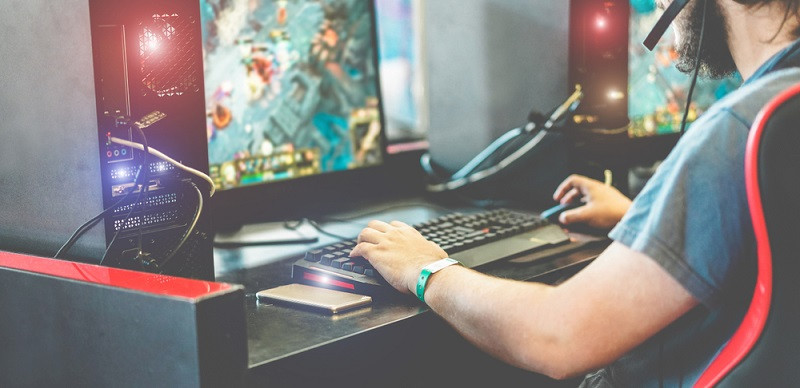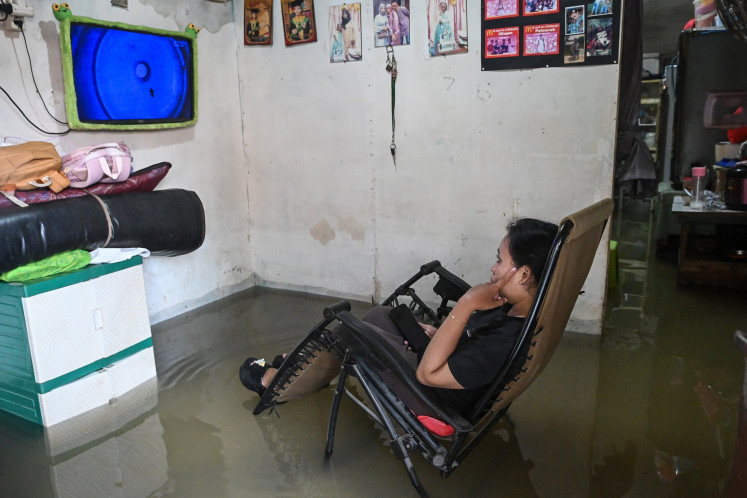Popular Reads
Top Results
Can't find what you're looking for?
View all search resultsPopular Reads
Top Results
Can't find what you're looking for?
View all search resultsHomegrown gaming companies thriving amid pandemic
Mobile game developer Touchten Games reported a 10 to 15 percent rise in daily active users for their games in the Asian and American markets.
Change text size
Gift Premium Articles
to Anyone
H
omegrown gaming companies are mostly thriving during the COVID-19 pandemic as people spend more time playing games during quarantine.
Mobile game developer Touchten Games reported a 10 to 15 percent rise in daily active users for their games in the Asian and American markets.
“We can consider ourselves lucky because we can adjust to the changing working conditions, such as working from home,” the company’s cofounder and CEO, Rokimas “Roki” Soeharyo, told The Jakarta Post on Friday.
Roki said the company’s team was able to keep up with a biweekly schedule of updating their latest game My Pet Café, which has been gaining popularity in the United States. The puzzle game had seen 20 to 30 downloads per 1,000 ads, a significant number in the industry, he said.
He added that Touchten also partnered with social gaming platform Hago to gain traction in Indonesia, India and Vietnam.
With no delays in sight, Roki said the company planned to launch Capsa Susun (Chinese Poker) by the end of the month.
Market tracker SuperData reported that spending on digital video games globally hit a record high $10 billion in March since the COVID-19 pandemic. It also noted that spending rose 15 percent on mobile games – mostly smartphone games – to reach $5.7 billion in March.
Similarly, mobile market analytics AppsFlyer noted that there more people were making in-app purchases for online games in Indonesia during this time.
Another gaming company, Agate Studio, reported a spike in users for its mobile games and gamified learning solution Levio.id, with an average user and spending growth of more than 30 percent from February to April. However, it also experienced losses in its offline business.
“We’re building a gamified advertising solution for offline events and that business has been hit hard,” Agate cofounder and CEO Arief Widhiyasa said, adding that the company predicted the offline business would further plunge within the next few months.
He went on to say that the company was trying to maximize the current situation by providing more online solutions and enhancing its education products by working with training consultants.
“Overall, we hope that there is more upside than downside and we are in high spirits about being able to grow this year,” Arief said.
An Indonesian Game Association (AGI) survey in March showed that most gaming companies, which largely focus on offline gaming, reported profit losses, although none have been forced to suspend operations.
As much as 30 percent of respondents said they lost Rp 101 million to 300 million in profits due to the pandemic while 10 percent reported losses of Rp 25 million to 50 million.
“While it’s true that some respondents claim their game sales have gone up since the quarantine, others are thinking about layoffs if the pandemic continues,” AGI chairman Cipto Adiguno said on Monday.
The survey also showed that studios were split in their runway capacity as 40 percent of respondents said their business could survive until next year while another 40 percent said they could only survive for the next three to six months.
Cipto went on to say that industry players were concerned about project cancelations and longer payment delays. Furthermore, he said a decline in consumers’ purchasing power could cause people to spend only on daily needs, not on entertainment.
“Digital entertainment should have a positive impact because of the quarantine,” he said. “We hope the government can promote local games, create a stimulus package for the gaming industry and provide interest-free loans to help support us during the pandemic.”
Months or even a year after the pandemic ends, he predicted that people would still opt to play video games at home as they would reduce the amount they travel and adopt work-from-home tendencies.
Aside from gaming, people are also tuning into streams, where they watch gamers broadcast their sessions online through video streaming services.
“We are definitely seeing more users in the Facebook Gaming platform since the pandemic,” Facebook SEA Games Partnership head Michael Rose said in a webinar on Friday, adding the platform also noted a 210 percent viewership growth over the past year.
He said that game streamers in Facebook Gaming could monetize their videos through advertisements on their pages, fan subscriptions and a ratings system in which fans would buy “stars” for the streamers.
The top five most streamed games on Facebook last year, Rose said, were Mobile Legends: Bang Bang, PUBG Mobile, Free Fire: Battlegrounds, Grand Theft Auto V and Free Fire.
According to game market research firm Newzoo, the Asia-Pacific is home to 55 percent of global gamers as well as the fastest growing market with 7.7 percent growth year-on-year.
The firm predicts the global gaming market will generate revenues of $159.3 billion this year, which would result in 9.3 percent yoy growth.










